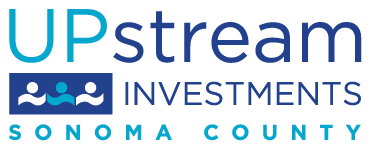Career Pathways
Conservation Corps North Bay’s (CCNB) Career Pathways program helps disconnected Sonoma County youth to reengage in work, school and the community. Our goals are to interrupt cycles of low academic achievement, unemployment and poverty by helping youth to transition from:
- Dropping out of high school to graduating (and pursuing higher education)
- Participating in job training to being job-ready
- Disconnecting from work and school to persisting in employment / school
Using a transitional employment model, CCNB provides youth and young adults, ages 18-25, with a combination of paid-work experience, academic credentialing and career and life skills development, including:
- Paid Work-Experience on fee-for-environmental crews where youth develop work-readiness while providing critical community services
- Skill-based Credentials that improve youths’ prospect of securing living-wage employment
- Academic Credentials including a high school diploma and post-secondary credentials
- Work-Readiness and Life Skills Development through presentations, workshops and coaching
- Ongoing Case Management and follow-up for up to two years upon completion
Accepted to the Portfolio: July 2019
Target Outcomes
Short Term Outcomes
- Re-engaged/increased engagement in school
- Improved English language competency
- Earned high school credits
- Demonstrated interest in post-secondary education
- Demonstrated ability to work independently
- Demonstrated transition skills
- Employed for at least 6 months
- Improved work-readiness
- Earned one or more specialized training certificates
- Increased financial literacy
- Increased connections to community resources
- Demonstrated knowledge of environmental issues and conservation principle
- Improved behaviors related to environmental protection and conservation
Long Term Outcomes
- Earned GED or high school diploma
- Enrolled in post-secondary education (including occupational/trade training
- Completion of post-secondary education or earned vocational training certificate
- Maintained post-program employment
- Advanced in position or wage
- Increased ability to support self and family
Target Population
Demographics
- Transitional Age Youth (16 - 24)
Service Area
County-wide:
- Southeast (District 1)
- Southwest (District 2)
- Central (District 3)

 Translate
Translate